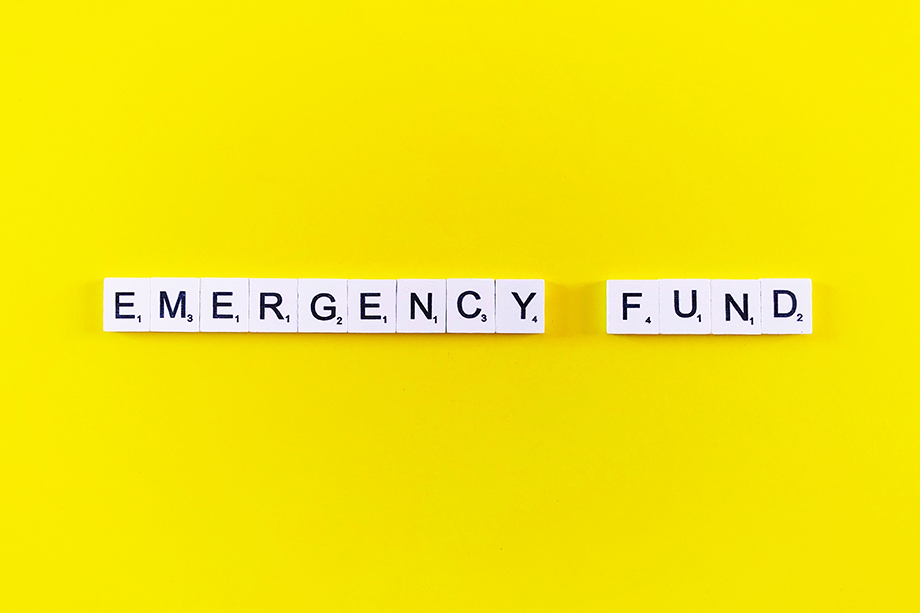He would also say, “A dollar saved is a dollar earned.”
The problem was he didn’t know anything about monetary policy and how it changed. He saved his hard-earned dollars all his life, but he did not realize that after 1971 his dollar was no longer money.
In 1971 President Richard Nixon changed the rules of money. That year, the U.S. dollar ceased being money and became a currency. This was one of the most important changes in modern history, but few people understand why.
But more on that in a bit.
Why is saving money a hard way to get rich?
You’ve probably come across one of our many blogs about how savers are losers. And it’s true. In an economy that runs on debt and thrives on inflation, there is nothing more financially dangerous than thinking your savings will provide a secure financial future.
Well, almost nothing.
Rich dad always said, “If you want to be rich and financially secure, working hard and saving money will not get you there.”
This is a lesson that Danielle Town, a former burned out corporate attorney, learned. Wanting to be free of having to depend on her salary for financial security, she initially thought the path forward was to save money.
Town quickly realized, with the help of her father, that she was “losing money through doing nothing.” Or actually, her money was doing nothing.
The big realization for Town was that inflation was a force eating into her money. As author Emmie Marin shares:
If you had stuffed $1,000 in cash under your mattress 50 years ago, today it would have the same buying power as only $153.04 in 1974.
However, that same amount invested with compound interest would have grown to about $20,000, assuming a 6 percent rate of return. Even if you only earn a 4 percent rate of return, it still grows to around $7,000.
Error: Campaign not found.
If you’re a regular Rich Dad reader, this probably is something you already know. But perhaps the most enlightening thing about reading Town’s story is that she had no idea, even by her mid-thirties, about the destructive power of inflation. As she relates to CNBC:
“Now, I realize that to some people who know about financial stuff, this sounds ridiculous,” she says. “But I didn’t know anything about financial stuff. I knew inflation was a thing that felt very macroeconomic, but I had never connected it to my actual savings.”
This highlights an important lesson about financial ignorance—it’s not bliss and it can cost you a lot of money.
The optimism bias
On the contrary, a report issued by bankrate.com reveals something even more financially ignorant than relying on savings—thinking you don’t need any savings at all.
The survey reveals that nearly half of respondents don’t have enough savings to cover three months of living expenses should a financial emergency happen, and 25% have no emergency savings. But perhaps even more alarming is that 18% believe that’s ok and that a financial emergency won’t happen to them.
An article on the survey in USA Today goes on to share that this passive attitude to emergency savings most likely comes from the fact that people don’t see others in their life have hard times, and so they don’t think it will happen to them. Psychologists call this optimism bias.
Two types of optimism
Optimism is a good thing. In fact, some could argue that you can’t be successful in life if you don’t have a good dose of it. But there are two kinds of optimism. One type is grounded in reality and the other in fantasy.
Fantasy vs. realistic optimism
Optimism grounded in fantasy says, “Nothing bad is going to happen to me and I’ll always be taken care of so I don’t need to worry about money.” Or perhaps a more dangerous form says, “I know I need to do something about my finances, but I’ll have time to do that later.” Of course, later never comes.
Optimism grounded in reality says, “It is inevitable that I will find myself in hard times financially, but I know that I can outsmart those hard times by investing in my financial education.” This kind of optimism acknowledges reality while also preparing to be the captain of your own financial ship.
Simply put, fantasy optimism trusts in forces outside your control to keep you safe. Realistic optimism trusts in your own ingenuity to keep you safe.
It’s okay to save for a rainy day
Remember, it’s okay to save for a rainy day. The narrative here isn’t that saving isn’t allowed at all. It’s important to have some liquid assets on hand should hard times come; and having several months worth of living expenses available isn’t a bad idea.
But rather than keep these in cash, keep them in liquid assets like gold and silver that can quickly be converted to cash if needed.
And whatever you do, do not count on savings as part of your investing or retirement plans – it is strictly for a rainy day.
Savings are not enough
To be clear, when we say that savers are losers, we’re talking about those who think savings will be enough to help them have a secure financial future. This is an old way of thinking that doesn’t take into account how money has changed, that it is a currency that loses value if it just sits and isn’t invested.
Because we live in an inflationary economy, cash loses value over time. On the other hand, assets rise and fall in value relative to inflation. If you want to thrive financially, you have to learn the three forces that steal the wealth of someone who relies on savings.
Reasons #1 to not save money: Taxes
“People who work hard and save money have a hard time building wealth because, relatively, they pay more in taxes,” said rich dad.
Error: Campaign not found.
He went on to explain that the government taxed savers when they earned, saved, spent, and passed on their money in the form of income tax, capital gains tax, sales tax, and estate tax.
There’s a reason why the government taxes savings rather than giving a tax break. As shared before, the government gives tax breaks in order to encourage behavior it wants people to participate in. Saving is not an activity the government really wants to encourage—even though it pays ample lip service to it—because saving does not grow the economy, debt does.
Why is this? Because when your economy is backed by fiat money, debt creates more money and more wealth…for those who know how to use it. Saving does not.
So if you’re a saver, you’re a loser because of taxes.
Rich dad also explained that another tax decimated savers—a hidden tax that Town discovered called inflation.
Reason #2 not to save money: Inflation
Rich dad used a simple figure of $1,000 to explain why savers almost always became losers in the economy.
Rich dad explained, “Your $1,000 is immediately eaten away by inflation, so each year it is worth less.”
Rich dad went on to explain that each year the interest the bank paid you was eaten away by both taxes and inflation. The government took 30 percent of the interest earnings through capital gains taxes and inflation ate away at almost all the rest…or more.
As mentioned above, $1,000 saved 50 years ago would be worth $153.04 today. That, coupled with taxes, means you are in the negative when it comes to the purchasing power of your dollars when you are a saver. That is why rich dad thought that working hard and saving money was a hard—if not impossible—way to get rich.
So, thanks to fiat money, savers are also losers because of inflation.
Reason #3 to not save money: Avoiding risk
When you work hard to save money, you place your “security” in those savings. It becomes very hard for those who spend all their energy saving money to branch out and invest it for fear all their hard-earned money will be lost.
“People who work hard and save often think that investing is risky,” said rich dad. “And when you think something is risky, you avoid learning.”
Rather than take a perceived risk to grow their money exponentially through investing, most people take the “safe” route of saving their money because it is what they know and understand.
Unfortunately, as we learned above, saving is not safe. In fact, it’s the riskiest way to use your money because of taxes and investing.
In a fiat money system, the spoils go to those who take risks and invest based on debt to create more fiat money. The system does not reward hoarders. The whole point of the fiat money system is to create more wealth through debt. Saving is counter to this. That is why the government makes it hard to save money and get rich. If they really wanted this, they’d make it easier to do through policies. But they don’t.
But wait, there’s another good way to save
Outside of emergency savings, another good kind of savings is money set aside specifically for investing. This is called “pay yourself first.” You should treat your savings for investing not as part of your asset column but instead as part of your expense column on your balance sheet. It is your most important expense, more so than any other and should take first priority.
When Robert and Kim Kiyosaki were young, they did this much to their bookkeeper’s lament. If they didn’t have enough money to pay their bills, they pushed out what they could or negotiated with bill collectors, but they never pushed out their investment savings.
Use your investment savings to buy cash flowing assets
As you save your money for investing, you should also work on identifying the right asset you want to invest in that will produce cash flow at the right return. This could be real estate, a business, or technical stock trading—whatever you’re interested in.
This takes financial intelligence to do, however, so you must invest in that as well, and the biggest cost will be time for that.
Error: Campaign not found.
As you grow in financial knowledge you’ll also grow in confidence that you can tackle any finance challenge that comes your way: realistic optimism.
The good news is it’s never too late to start investing in your financial knowledge, building your emergency savings, and creating your investing savings. And starting today is the surest way to make sure you don’t end up as a financial loser.





